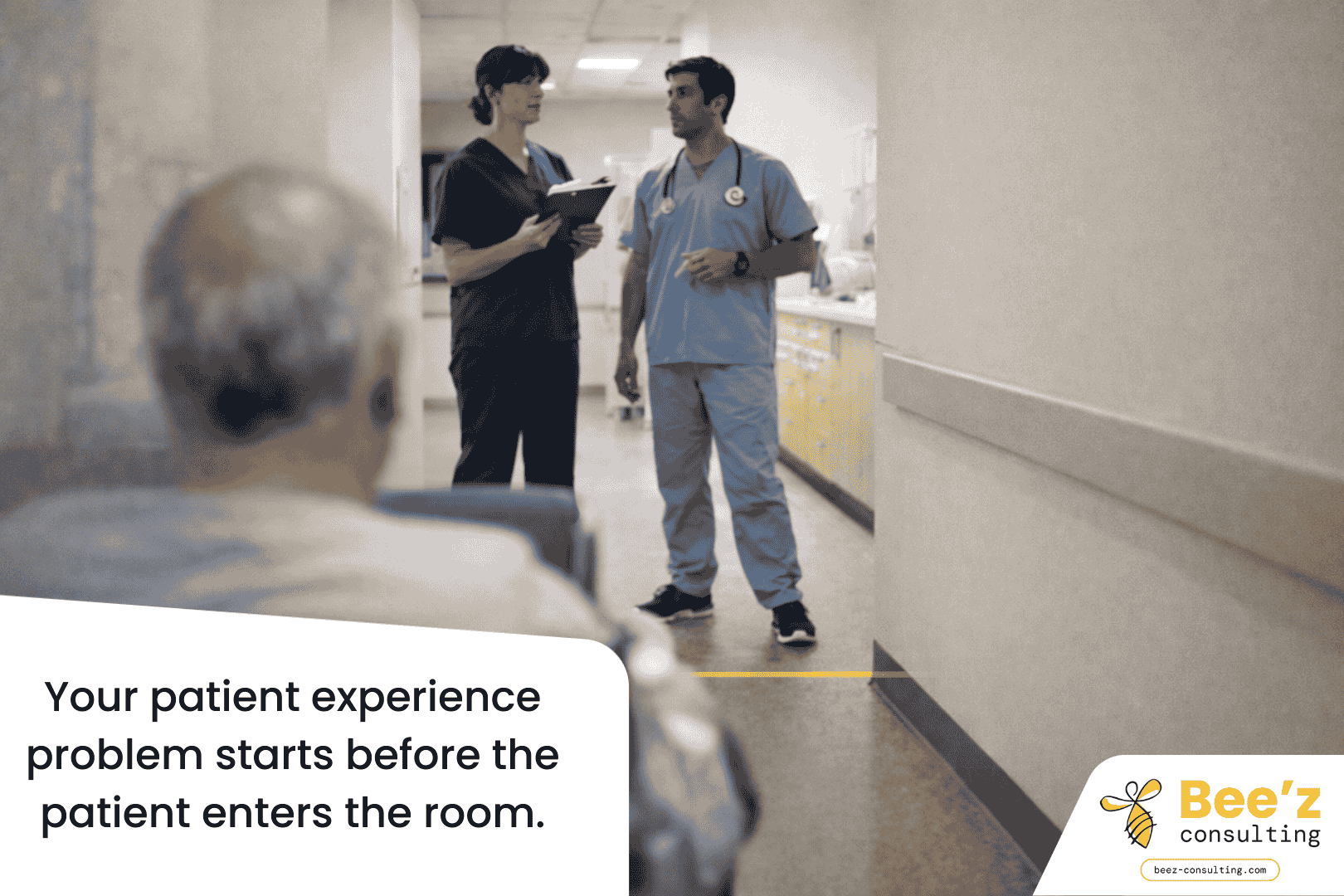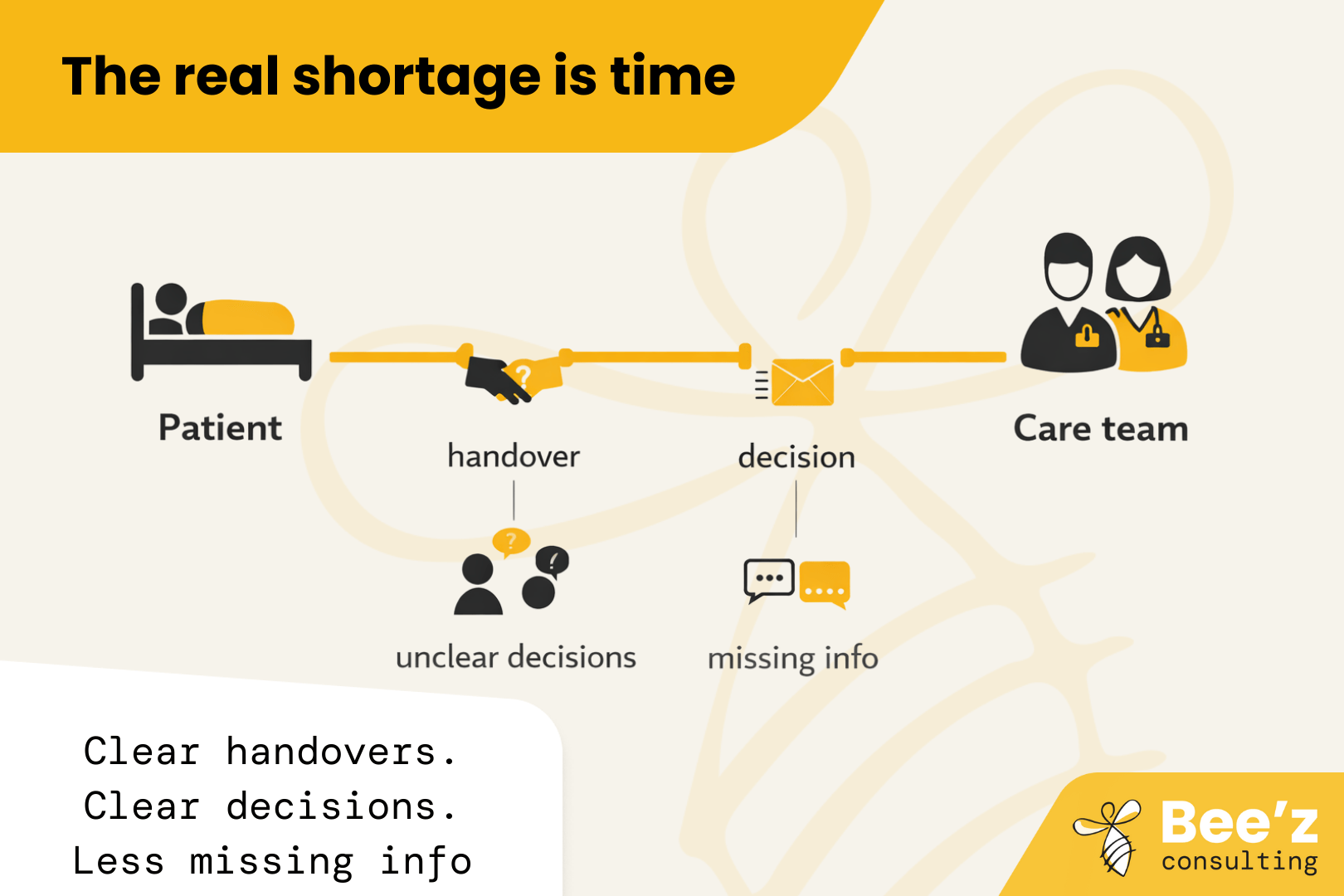
It didn’t start with a big announcement.It started with a feeling.A little less margin.A few more empty chairs.A few more tired faces in morning rounds.And then, all at once, it became clear.Growth wasn’t growing anymore.
Across the Atlantic, a few U.S. CEOs began to say it out loud.Maybe growth isn’t about more buildings. Maybe it’s about earning trust.
In Europe, the same thought had already started to surface — quietly,pragmatically, behind closed doors.
Hospitals in Switzerland, France, and Germany were seeing the same signs.
It wasn’t a crisis.
It was a slow, steady realization: the old idea of growth — bigger, faster,louder — was losing meaning.
For years, growth in healthcare meant construction cranes and recruitment drives.
More beds.
More staff.
More sites.
But the new frontier looks very different.
Growth today sounds more like:
In Switzerland, several hospitals are shifting their focus from expansion to continuity.
From counting patients to connecting them.
From collecting data to using it meaningfully.
The question has changed from “how do we add more?”
to “how do we make what we have work better, together?”
In Brussels and Bern, the new word for growth isn’t “resilient.”
That word has been used too often to ask people to carry the impossible.
In healthcare, resilience became a silent trap — a polite way of saying “hold on a little longer.”
But systems can’t rely on people’s endurance forever.
Across Europe, leaders are slowly rewriting that story.
They are talking about renewable systems instead of resilient ones.
About structures that restore energy instead of consuming it.
About work cultures where people can recover, recharge, and reengage — without guilt.
The new European growth model rests on three ideas:
This isn’t about endurance. It’s about renewal.
Because the health systems that last are not the toughest — they’re the ones that know how to breathe.
Switzerland may be small, but it’s a powerful mirror for the wider European story.
Hospitals here are learning that real progress doesn’t come from adding more departments.
It comes from creating more coherence.
You see it when clinics start mapping the entire patient journey, not just the hospital stay.
You see it when quality and HR teams work together to design a culture of responsibility, not blame.
You see it when leaders start asking not, “What should we build next?”
but, “What should we strengthen now?”
Some call this operational excellence.
We prefer to call it trust in motion.
Because once teams and patients trust the system, growth takes care of itself.
Digitalisation is no longer a buzzword in Europe.
It’s a lifeline.
The European Health Data Space (EHDS) is turning health information into a shared asset — giving patients secure access and giving providers shared intelligence.
In Switzerland, the shift is happening hospital by hospital.
From interoperable EHRs to digital patient portals, leaders are experimenting with how data can reduce friction and free up human energy.
The logic is simple:
If information flows, care flows.
And when care flows, trust grows.
That’s the real power of digital health — not technology for its own sake, but technology that restores connection.
Across Europe, the definition of growth is quietly expanding — and softening.
Growth now means:
This isn’t a management theory.
It’s happening in real time.
In Swiss clinics that train leaders to lead with emotion, not hierarchy.
In hospitals where culture change is seen as a performance lever, not an HR project.
In systems that measure success by how smoothly teams collaborate, not how fast they expand.
At the heart of this transformation lies something deeply human.
People don’t resist change because they dislike new ideas.
They resist it because they are tired of promises that don’t materialise.
Growth built on trust means keeping those promises.
It means showing — not saying — that improvement is possible, together.
In one Swiss clinic we worked with, a manager told us,
“We used to think growth meant adding. Now we see it means aligning.”
That shift changed everything.
Team meetings became spaces for reflection, not reporting.
Departments began sharing insights, not defending turf.
And patients started noticing — small gestures, faster decisions, warmer care.
That’s growth.
Not in numbers, but in confidence.
Integration may sound technical, but it’s emotional.
It’s about nurses who finally see the results of their work reflected in outcomes.
It’s about administrators who no longer drown in systems that don’t talk to each other.
It’s about patients who don’t need to repeat their story five times.
Integration is not a software project.
It’s a trust project.
And it’s the backbone of Europe’s next phase of growth.
If there’s a single idea connecting Europe’s new health leaders, it’s this:
Growth is not about size. It’s about significance.
A system can be large and still fragile.
It can be small and still mighty.
The question for every hospital, every network, every ministry is:
How do we grow what matters most?
Sometimes that means digital expansion.
Sometimes it means human repair.
Often it means both.
But in every case, it means taking care of the system that takes care of us.
At Bee’z, we see this movement firsthand.
In the Swiss hospitals we support, leaders are no longer asking for “change management.”
They’re asking for meaningful progress.
They want teams who own decisions.
They want managers who coach, not command.
They want systems that learn — from mistakes, from emotions, from each other.
That’s the foundation of what we call people-first growth.
Growth that lasts because it’s built on alignment, not ambition.
When trust grows, performance follows.
And when both grow together, the system becomes unstoppable.
So here’s the real question for leaders across Europe:
If you had to define growth without using numbers, what would you say?
Would it be access?
Trust?
Belonging?
Continuity?
Whatever your answer, that’s your strategy.
Because the future of healthcare will be written by the leaders who choose depth over display, and trust over noise.
From the U.S. we learned the urgency of action.
From Europe we’re learning the art of restoration.
The best systems will blend both:
Fast enough to adapt.
Grounded enough to last.
Growth used to mean running ahead.
Now it means walking together — patients, professionals, policymakers, and people.
Growth is changing shape.
It’s moving from profit to purpose.
From expansion to experience.
From numbers to nuance.
And that’s good news.
Because the health systems that grow slower and truer will be the ones we trust most.
What would growth look like in your hospital if the goal was trust, not scale?
Start there.
That’s where the real transformation begins.



Patient experience starts before the bedside. Fix staff-to-staff handovers with two simple habits that cut friction, boost clarity, and build trust fast.


The real shortage is time with patients. “Thrive” is the missing lever. Fix daily workflow friction so hiring and retention finally pay off.

.png)
Leadership often breaks under pressure, not in training rooms. See why simulations help leaders practise real decisions and conversations, and how Bee’z Consulting turns practice into visible results within 7 days.
